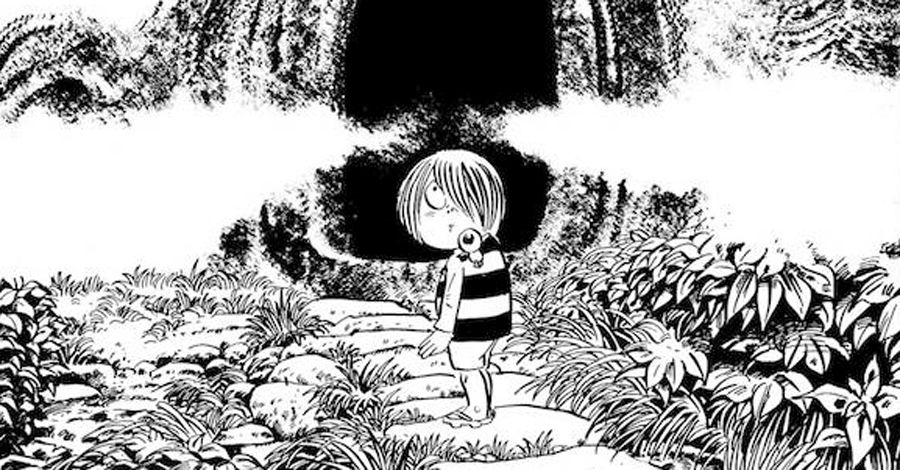Shigeru Mizuki, author of the enduring supernatural manga GeGeGe No Kitaro, which popularized the Japanese spirits known as yōkai, passed away today at age 93.
According to The Wall Street Journal, Mizuki had been hospitalized since Nov. 11, following injuries he sustained when he fell and hit his head at his home in Tokyo.
Long beloved in his own country, Mizuki rose to international attention in 2007 when his NonNonBa became the first manga to be honored as Best Album at the Angouleme International Comics Festival. Drawn and Quarterly began publishing his work in English in 2011, with his searing semi-autobiographical war story Onward Towards Our Noble Deaths, which won an Eisner Award; two volumes of Showa, his history of the Showa period, won the 2015 Eisner. His most recent work to be released in English is his biography of Hitler, published earlier this month by Drawn and Quarterly.
Mizuki was born in 1922 and grew up in a small coastal village. As a child he befriended an older woman who told him stories about yōkai, sowing the seeds for his later work. He was drafted into the Imperial Japanese Army in 1942 and sent to Papua, New Guinea. In Onward Towards Our Noble Deaths he tells of the day-to-day trials of soldiers as well as the horrific incompetence of their leaders: Tn that manga, the unit survives an attack, but because their deaths have already been announced, their commander tells them to go on a suicide mission and not to return alive. The book is fictionalized but based on his own experiences; he lost an arm to an Allied bomb, and later in life he said he was the only survivor of his unit and was ordered to die by his commanders.
After being discharged from the military, Mizuki returned to Japan and ran a movie theater until his first manga, Rocketman, was published in 1957, beginning his long and prolific career.
Mizuki is largely responsible for the popularity of yōkai stories in Japan. In a 2005 interview he said that while they were inspired by the stories he heard as a child, most of his knowledge actually came from reading the works of the folklore researcher Kunio Yanagida. His hometown of Sakaiminato has honored him by placing 153 bronze statutes of yōkai along a road named for him, and by dedicating a museum to his work.
Mizuki's GeGeGe No Kitaro has been adapted into several anime and live-action movies, and the author himself was the subject of a television drama about his life with his wife.

